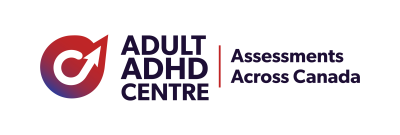Rising Diagnosis and Treatment Rates of ADHD in Canadian Adults: Dr. Gurdeep Parhar, MD, Provides Historical Perspective and Current Insights

VANCOUVER, British Columbia, October 13, 2023 (Newswire.com) - Dr. Gurdeep Parhar, co-founder of the Adult ADHD Centre, a pioneer in comprehensive care and support for Canadians since 2016, has unique insights into the varied impact of ADHD. “At the Adult ADHD Centre, we find 70% of people accessing our services are 20-40 years of age; this highlights the critical need for accessible assessments for this age group.”
Has there been an increase in adults being diagnosed with ADHD? Dr. Parhar acknowledges that there has been an increase, adding, “This is to be expected as there has been a greater understanding among the public and health practitioners that ADHD is not a condition that only affects children; ADHD symptoms persist into adulthood. More concerning is that misconceptions and limited healthcare access has contributed to approximately 80% of Canadian adults with ADHD never being diagnosed or treated. These adults struggle daily with schooling, work, and relationships. They should not have to struggle any longer.”
While there has been an increased awareness of ADHD in society and among healthcare practitioners over the past decade, particularly during the COVID-19 pandemic, Dr. Parhar recognises that, over the same period, there has also been an increase in people being diagnosed with other mental health conditions such as depression and anxiety. He states, “Mental health conditions being accurately identified and better treated is a very positive trend.”
Dr. Parhar explains, that “while we see more adults being diagnosed with ADHD, it is important to acknowledge how our understanding of ADHD has advanced and contributed to this.” Prior to the 1980s, ADHD was called Hyperkinetic Reaction of Children. “The Diagnostic and Statistical Manual of Mental Disorders (DSM), an authoritative guide to the diagnosis of mental disorders for healthcare providers, updated the guidelines 10 years ago to incorporate more specific diagnostic criteria for adults. This update has provided clinicians with clearer guidance on diagnosing adults with ADHD.”
In recent years, significant progress has been made in the management of Adult ADHD, encompassing both non-medication and medication-based approaches. Educational institutions and workplaces are increasingly recognizing the importance of accommodations and support systems for individuals with ADHD. A surge in the number of counsellors and coaches specializing in ADHD demonstrates a growing awareness of this condition.
Technology has also played a pivotal role in enhancing people’s ability to access invaluable resources. For example, organizations like the Centre for ADHD Awareness, Canada (CADDAC) have utilized webinars as teaching tools to enhance ADHD awareness. More adults with ADHD are recognizing that they can lead better lives.
Source: Adult ADHD Centre
